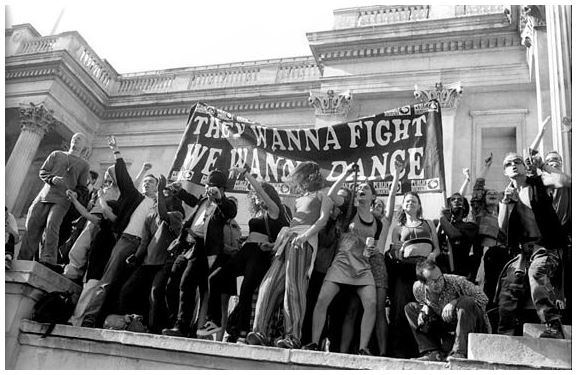The Public Order Act – 1936 (2012)
The Public Order Act 1936 Dissertation – The motivation to engage with this project stems primarily from the fact that the Public Order Act does not elicit a great deal of coverage in the majority of academic books pertaining to political extremism in the inter-war period, despite the fact that the history of the British Union of Fascists is largely inseparable from issues of political skirmishing and public order. In very few books the Act receives a chapter, in the majority it receives even less.
In my research I have not uncovered any new material or any new historiographical contentions, nor do I seek to exculpate the British Union of Fascists (BUF) from any negative stereotypes to which they are bound. My initial inclination to research this project was because I felt that something that was such a departure from the traditional British political ethos of liberalism that had increased executive power at individual expense, and the reaction that it garnered, deserved a greater deal of exposure.
Indeed, Lewis concludes that the National Governments more notorious legislative and procedural innovations have left a stain upon the record of civil liberties. Furthermore in light of the current political context I felt that it would be very fitting to investigate a topic that pertained to the invasion of and reduction of civil liberties. It is often neglected that the actively anti-Fascist NCCL were amongst the most explicit critics of the Act.
To that point, the Public Order Act is very useable history. This dissertation, through three chapters, will analyse briefly the Act itself, and more deeply, the British Union’s response both politically and individually, and consequently the effect of the Act through an array of primary sources, thereby crafting a slightly more narrow account perhaps than is to be found in the majority of academic material. The enforcement of the Public Order Act will also be analysed.
From this research this project tentatively concludes that the response to, and the effect of the Public Order Act, despite various central features, differed across Great Britain and the assorted municipalities in accordance with the region’s diverse economic, ethnic, political, social and topographical current environment.
This project does realise that a definite assertion can never be reached due to the size and scope of the regional fluctuations, thus any conclusions must be reached cautiously. What should be noted also is that in this work, the effect of the Public Order Act should be understood as the response it extracted from the BUF. This project does not seek to place the Act within the context of a chronological analysis of the failure of the BUF.
The demise of the BUF was brought about by myriad factors, simply put though this work is driven more by a desire to uncover the group and individual response from the BUF. The effect then of the Public Order Act will not be accessed through membership figures or sales of extreme political magazines. The attempt to gauge an effect of any political event is subjective at the best of times, and is not the concern of this work.
- 10,000 words – 30 pages in length
- Outstanding use of literature
- Good analysis of subject area
- Well written throughout
- Ideal for sociology students
Introduction
1- The Public Order Act, 1936: the political response
2 – The Public Order Act, 1936: the individual response
3 – The Public Order Act, 1936: police enforcement
4 – Conclusion
Bibliography

